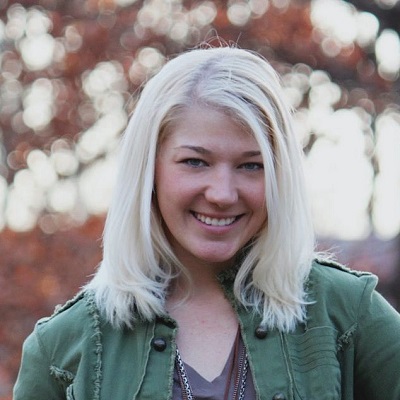
Jacalyn Beck, doctoral candidate studying fisheries and wildlife in the College of Agriculture and Natural Resources, is a first-generation college graduate, with a lifelong passion for science, who grew up in an impoverished part of Pittsburgh, Pennsylvania.
“My personal story is one characterized by unwavering determination to achieve my goals despite considerable adversity,” Beck said. “My interest in science defined my high school experience as I pursued every opportunity to expand my education through apprenticeship programs at the University of Pittsburgh and attendance in the Upward Bound Math and Science program at Penn State University (PSU).”
Beck earned her undergraduate degree from PSU. During her senior year at PSU, she pursued research abroad, choosing the School for Field Studies (SFS) in East Africa because of its field-based wildlife management curriculum, research opportunities, and community engagement. Despite her acceptance as only one of 28 students, she was denied application of her existing financial aid because SFS was not a PSU affiliate.
“For over a year, I worked with PSU’s Global Programs and Study Abroad offices to navigate the financial issues and independently fundraise to support my experience,” Beck said. “Acknowledging my efforts, PSU revised their policies and is now an SFS affiliate. To date, over 30 PSU students have graduated from an SFS program abroad, which is something I’m very proud of.”
Her current research takes her back to East Africa, where lion populations are declining at an alarming rate and conflict with humans is at an all-time high. There, in the rangelands of Tanzania, Beck focuses on how individual variation in animal behavior plays a role in this conflict. Specifically, she studies the ways that livestock are effected by the possibility of lion predation and the choices they may make to avoid it, as well as how lions differ from one another within social groups and how these differences may lead to variation in livestock depredation.
Beck said she hopes her research will provide recommendations for spatial or behavioral modifications of herding practices that will decrease livestock depredation and the resulting retaliatory killing of predators like lions.
“I want to produce new insight into the interactions between lions and livestock that will help ensure continued persistence of lion populations as well as the sustained livelihoods of herders,” she said.
In addition to supporting local communities through her research, Beck strives to benefit society in other academic and non-academic ways. For example, she is currently a member of the Graduate Women in Science organization (GWIS) at MSU where she plays an active role in the Undergraduate Mentoring Committee, pairing undergraduate students with graduate mentors in STEM fields. With GWIS, Beck also helps to administer countless outreach opportunities, community events, and professional development not just at MSU but all around mid-Michigan. She hopes to continue building these personal and professional relationships in her future career.
“I have always been extremely passionate about carnivore research and conservation,” Beck said. “With an advanced degree, I will be able to pursue professorships that allow me to continue conducting applied wildlife research while also instructing, motivating, and supporting young scientists.”
The National Science Foundation Graduate Research Fellowship award consists of a three-year annual stipend of $34,000, along with a $12,000 cost of education allowance for tuition and fees. Beck’s first and fifth years of her doctorate program are covered by the MSU Distinguished Fellowship she received last year. The money from the NSF Graduate Research Fellowship will fund the other three years of her doctorate program.
“Receiving this award is an affirmation of my belief to never give up,” Beck said. “This was my third attempt at the grant and final year of eligibility. So, to finally achieve it on my last try means so much. This is a huge honor and gives me a leg up as I pursue my research over the coming years. In so many ways I have proven to myself that through determination I can achieve even my toughest goals. Now I aim to inspire that belief in others.”


